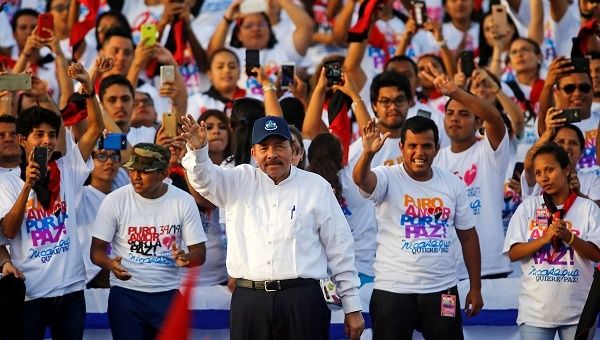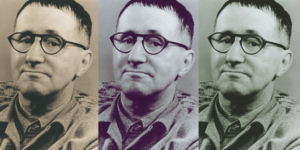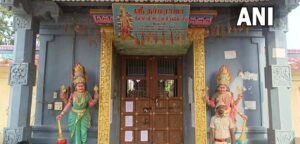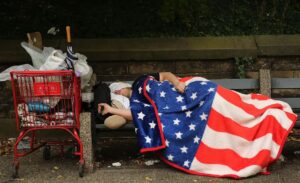Nicaragua Defeats the Not-So-Soft Coup

The July 19, 2018 demonstration in Managua, the capital of Nicaragua, is a massive celebration of the coup’s defeat and a categorical vindication of President Daniel Ortega’s Sandinista government’s efforts for peace in the country.
On July 19, hundreds of thousands of people from across Nicaragua converged on the capital Managua to celebrate the 39th anniversary of their historic 1979 defeat of the Somoza dictatorship. It signalled the defeat of the soft-coup launched by the USA in association with the Nicaraguan opposition to unseat the socialist government of Sandinista National Liberation Front, or FSLN, headed by President Daniel Ortega. Speaking during the celebrations, Ortega told thousands of supporters that right-wing opposition groups, believed to be financed by the United States, are trying to destabilize the country and end the peace that had existed during the last 11 years of his administration.
Similarities with 1979
There exist several similarities between the situation existing today in Nicaragua and back in 1979, when the revolution had first triumphed. Then too, the USA had launched a three pronged attempt to strangulate the Sandinistas and force them out of power, including (i) economic strangulation through the economic embargo and associated U.S.-imposed trade and credit blockades that ruined the Nicaraguan economy and pushed most Nicaraguans to suffer significant misery; (ii) financed a terrorist military force known as the Contras that caused widespread suffering and damage across the entire country through ambushes, assassinations of various community leaders, kidnappings and disappearances of other important citizens, and attacks on cooperatives—tens of thousands of Nicaraguans were killed in the bloody campaign launched by the contras; and (iii) through the CIA and the National Endowment for Democracy (NED), financed a number of Nicaragua’s opposition parties and pushed them to unite into the United Nicaragua Opposition (UNO). Eventually, in 1990, weary of war and hyper-inflation, the Nicaraguan electorate voted the Sandinista Party out of office, and the UNO came to power.
Seventeen years later, in 2007, the Sandinistas came back to power and Daniel Ortega, the leader of the Sandinistas, became the President. The atmosphere in Latin America had changed, several countries were now successfully opposing US intervention and chalking out independent, socialist agendas. With Venezuelan help, the Sandinistas too began implementing social welfare programs designed to help the poorest of the poor and advance socialism, and Ortega won two consecutive re-election victories in 2011 and 2016.
During the last few years, the right wing has made a come back in some countries of Latin America. Enthused by right wing victories in Ecuador and Brazil, in April 2018, the US intelligence agencies, together with the NED and USAID, have once again launched an offensive through the right wing opposition in Nicaragua to destabilise the FSLN government by arming the opposition and imposing an economic embargo. The Catholic Church too openly came out in support of the opposition. The opposition staged armed roadblocks, bring road movement to a halt, pushing the economy into a deep crisis. Simultaneously, it launched a violent campaign, burning down and destroying hundreds of families’ homes, public buildings and small- and medium-sized businesses, as well as attacking Sandinistas, government officials and police officers, in which several people and even police officers were murdered. The overall aim was to create conditions for complete breakdown of institutionality, thereby creating a beachhead from where the country could be infiltrated with “multinational” forces to support an insurrection against the government. It was a strategy that had succeeded several times in various countries of Latin America in the past.
Fake News
Simultaneously, the political opposition used social media to misrepresent and exaggerate events, create incidents that never happened and obliterate their own criminal terrorist attacks. For example, it claimed that the crisis in Nicaragua began with a fake ‘student massacre’, that actually never took place. The opposition also faked attacks on a church in Managua, exaggerated casualties during the clearance of opposition thugs from the national university, and covered up their own deliberate murders of police in the towns of Morrito and Masaya as well as their gratuitous attacks on peaceful Sandinista demonstrators. It expertly staged phony scenes of students taking cover from gunfire and used those images to justify their own savage attacks, like those in which they burned down pro-government Nuevo Radio Ya and the rural cooperatives’ savings and loan institution CARUNA.
Although the extreme violence of the armed opposition activists has been responsible directly and indirectly for almost all the loss of life and injuries during the crisis, international news media such as the Washington Post, New York Times, BBC and CNN, and ‘human rights organisations’ such as Amnesty International have continued to publish fake photographs of opposition activists being attacked and falsely blame the government for virtually all the deaths and people injured.
Soft Coup Defeated
Ever since the opposition began its violent campaign to bring down the democratically elected Sandinista government, President Ortega called for a process of National Dialogue to peacefully resolve opposition demands. But Nicaragua’s political opposition and their allies were never really interested in a dialogue, and so they sabotaged all the talks. Nevertheless, the government always attended the dialogue table, even when it meant listening to absurd proposals such as early elections or even worse, Ortega’s resignation. The serenity demonstrated by Ortega and his government won massive support from the people, and the FSLN gradually channelised this into a return towards stability.
While the opposition blamed the police for the violence and bloodshed, the fact is, the Nicaraguan police force is considered to be one of the most efficient ones in Latin America. It has been developed by the Sandinistas as a community force, with great insertion in the neighborhoods and communities. It has controlled drug trafficking and the Maras (the very violent Central American gangs whose origin is linked to the US) have never managed to enter the country. The Nicaraguan National Police was founded by Tomas Borge (FSLN revolutionary commander) as “the sentinels of the people’s joy” and has inherited the best Sandinista ideals.
Early in July, the opposition reneged on an agreement to dismantle the roadblocks their armed supporters have used since late April to try to destroy the country’s economy and intimidate the general population. The government then declared on July 9 that it would no longer permit the opposition to abuse the population’s basic rights to peace and security, and ordered the police to dismantle the roadblocks.
Subsequently, Nicaragua’s national police have worked with local communities around the country to clear the opposition roadblocks. In Jinotepe, they set free hundreds of trucks and their drivers held hostage by opposition gangs for over a month. In many places, they successfully negotiated agreements to remove the roadblocks peacefully. Elsewhere, the process has involved violence and casualties, provoked by very well-armed activists and associated paid criminals. On July 12, opposition activists attacked a police post and the local municipal office, murdering four police officers and a primary school teacher, wounding four municipal workers and kidnapping nine police officers; on July 13, in Managua, two opposition activists were killed during the clearance of blockades in and around the National Autonomous University.
A desperate political opposition, finding their counter-revolution failing, have been desperately trying to keep up their violence so as to sabotage efforts at National Dialogue and project the false image of a repressive government without popular support. However, large demonstrations across the country supporting the government’s efforts for peace show exactly the reverse is true. Majority national opinion in Nicaragua is well aware of the opposition’s propaganda ploys and false claims.
Need to Consolidate Popular Power
The huge public demonstrations in Managua and other cities prove the ability of the government and FSLN party to summon people to the defence of the revolution. Those who thought that there would be a triumphant counter-revolutionary government by the end of July have been left wringing their hands in dangerous frustration.
But the right-wing will not give up its efforts to seize power. The government must deepen measures to consolidate popular democracy, both as regards citizen participation and in the construction of an effective popular power, as well as in speeding up the redistribution of resources and the improvement of living conditions for the still disadvantaged sectors. Moving forward in these two areas simultaneously is the only way to guarantee the continuity of revolution.
The history of the revolutions in South America have shown us the fragility of our triumphs. These become vulnerable to defeat by capitalist forces when popular power is not consolidated and when the alliances with the capitalist sectors are not properly managed. It must not be forgotten that the latter are only fragile alliances, we cannot allow the capitalist sectors to dominate the economy and the government, and we must gradually make attempts to expand the socialist sectors of production. It is an extremely complex task and in that difficulty, the “Cantos de Sirena” (mermaid’s call or siren songs, a seductive or deceptive call) of corruption and using the resources of the state for personal enrichment are always present.
Brazil and Ecuador are the most recent examples of the right-wing’s ability to overthrow socialist governments and reverse socialist advances. The high cost in lives in Nicaragua and Venezuela, during the attempt “to return to the dark neoliberal night,” should lead us to a deep self-critical reflection about the role of the different political parties, about the transition towards a culture of solidarity and about the need to consolidate and make more effective the mechanisms for participation of people in the running of the government and the economy, or participatory democracy as they call it in Venezuela.
Today, in Nicaragua, people from the right-wing thought they would be able to celebrate the defeat of the FSLN Government but they were defeated in every single battlefield—the political one, the economic one, on the streets.
The ease with which the coup was defeated can be understood by the fact that the government did not find it necessary to call out the army; the triumph was achieved with the help of the National Police and organised Sandinistas. However, we can not claim victory yet, we cannot let down our guard. We need to consolidate and deepen popular and participatory democracy, street by street, block by block, neighborhood by neighborhood, community by community.
Author
Read more



